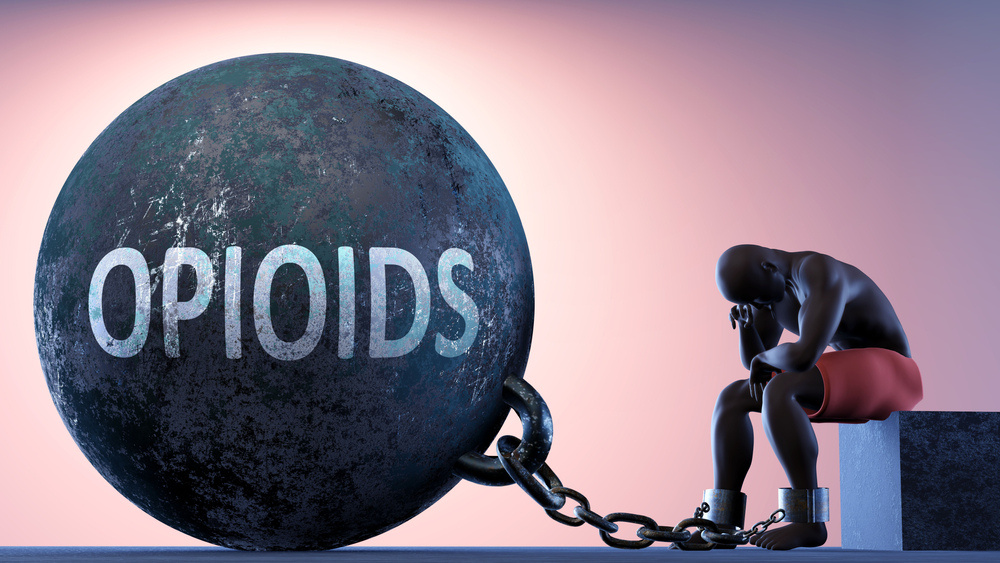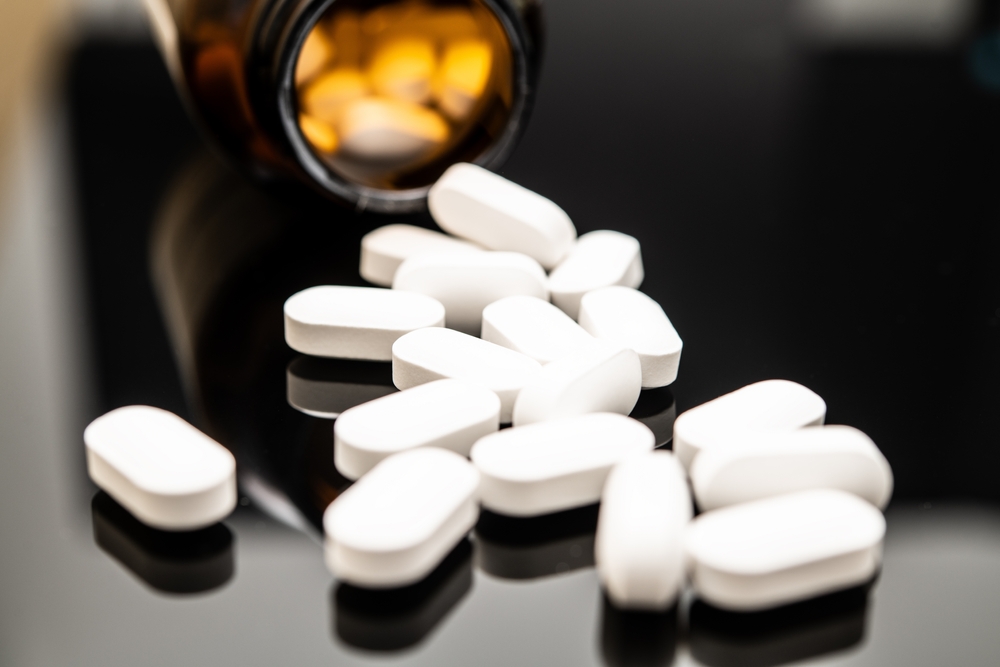Last Updated:
August 19th, 2025
Opioid Rehab Treatment | What to Expect
Opioid addiction can be very dangerous, but it is also incredibly devious. You probably started taking painkillers for a legitimate reason, rightfully trusting your doctor and the medication they prescribed. But when you realise opioids have quietly taken over your life, professional opioid addiction treatment can give you the support you need to take control back.
Struggling with an addiction? If you are ready to seek help, reach out to us today, and a member of our compassionate team will help you find the best option for starting your recovery journey.
What is opioid rehab?
When you start opioid rehab, it’s like finally getting a chance to catch your breath after feeling suffocated by drugs for so long. Rehab usually kicks off with a professionally planned and executed opioid detox, which means you’ll have medical support to help your body safely adjust to life without opioids. This is very important because quitting abruptly can be tough on your body and can even cause dangerous reactions.
Once you are through withdrawal and feeling more comfortable physically, you will begin to unpack how opioids became such a controlling part of your life. Maybe you were prescribed painkillers after surgery or an injury and found yourself needing more and more just to feel normal. Or perhaps opioids became a way to numb emotional struggles you didn’t know how to face. Whatever your personal situation, opioid rehab gives you the emotional support and knowledge to understand what’s beneath it all and heal in ways that last.
Some of the most common addictive opioids which may require rehab include:
Buprenorphine
Buprenorphine is actually used to help people stop using stronger opioids but sometimes it can become a problem on its own. Opioid rehab will help you gently come off buprenorphine while learning healthier ways to manage cravings and the issues behind your drug use.
Codeine
Codeine addiction can creep up quietly because it’s often prescribed for mild to moderate pain or persistent coughs. Opioid rehab is about helping you safely move past codeine reliance and addressing the reasons why it became such a big part of your life.
Demerol
Demerol (meperidine) can quickly become addictive, even when it’s prescribed for legitimate pain. Treatment for opioid addiction supports you through detox and helps you find new, safer ways to manage your physical pain or emotional struggles.
Dihydrocodeine
Dihydrocodeine might seem less intense than other opioids, but addiction can still quietly take hold. Rehab will help you safely withdraw and work through the reasons behind your dihydrocodeine use so you can find lasting relief without medication.
Dilaudid
Dilaudid (hydromorphone) is a powerful opioid that can quickly lead to a serious dependency. In opioid rehab, you will safely come off Dilaudid and learn practical, healthy ways to handle both the pain and emotional issues which are often behind Dilaudid abuse.
Fentanyl
Fentanyl is one of the strongest opioids and has been causing tragic loss of life, particularly in the US and Canada. Rehab for fentanyl protects you from the life-threatening dangers of fentanyl overdose and helps you rebuild your life safely.
Hydrocodone
Hydrocodone is commonly prescribed for injuries or surgeries, but many people find themselves hooked without meaning to. Opioid rehab helps you safely get off hydrocodone and find alternative pain relief methods.
Methadone
Methadone is meant to help people get away from opioids, but it can also lead to its own dependence issues. Rehab helps you safely withdraw from methadone, find an alternative opioid addiction treatment medication and face the underlying problems that have kept you using opioids.
Morphine
Morphine is a powerful painkiller that can quickly turn into a difficult dependency. Opioid rehab gives you medical and emotional support to stop safely while also resolving the root causes of your addiction.
Oxycodone (OxyContin)
Oxycodone, particularly OxyContin, has played a major role in America’s opioid crisis due to its high potential for addiction. Opioid rehab supports you to safely taper your use and rebuild your life from the ground up.
Tramadol
Even though tramadol is sometimes seen as less addictive, dependency can still happen fast and be tough to break. Opioid addiction treatment gives you careful support to stop safely and helps you deal with underlying physical and, possibly, emotional issues.
Vicodin
Vicodin addiction can start quietly because it is often prescribed after injuries or surgeries, leaving many people struggling to stop. Opioid rehab for Vicodin involves detox, therapy and aftercare so you can put dependency behind you.
Private inpatient opioid rehab vs. NHS outpatient opioid rehab
Picking between outpatient and inpatient opioid rehab is about figuring out what type of environment will best help you recover. Inpatient opioid rehab means stepping away from your daily life and staying in a comfortable, supervised centre where medical professionals support you around the clock. It is ideal if you need a break from triggers and stresses or if you are a little isolated without much support.
Outpatient opioid rehab, meanwhile, might work better if your home life is stable and you need to continue working, studying or caring for your family. It provides therapy and medical care through regular visits, allowing you to stay connected to your usual life while gradually moving away from opioid use.
Here is a simple breakdown of the key considerations:
|
Inpatient opioid rehab |
Outpatient opioid rehab |
|
| Daily environment | You will receive fully supported residential care away from stressors or opioid triggers | You will stay at home, attending treatment sessions regularly |
| Access to medical help | Immediate 24/7 support whenever you need it | Varies but may include scheduled medical check-ins |
| Medical detox | Safe and fully supervised at the opioid rehab centre when you arrive | Less intensive oversight with detox possible arranged off-site |
| Type of therapy | Intense daily therapy and wellness activities | Therapy is integrated into your regular weekly schedule |
| Balancing life | Structured days to fully focus on recovery and make the most out of your time | Allows you to continue taking care of daily responsibilities like family or work |
| Availability and cost | Private, immediate access but with fees | Affordable and possibly free through the NHS but you may need to wait for a spot to open up |
Therapies involved in opioid addiction treatment
When comparing opioid rehab programmes and centres, make sure that they offer a good mixture of treatments, including:
How to find opioid addiction treatment near me?
If you’ve decided that opioids have controlled your life for long enough, we’re here to help you turn things around. At Addiction Helper, our caring team understands exactly how overwhelming this can feel, and we’ll guide you through the best opioid rehab options for you. Reach out today, and we’ll help you put opioids behind you for good.
Our compassionate team are ready and available to take your call, and guide you towards lasting the lasting addiction recovery you deserve.
Frequently Asked Questions
(Click here to see works cited)
- UK Addiction Treatment Centres. “Opiate Addiction: Opioid Abuse Signs & Symptoms | UKAT.” UK Addiction Treatment Centres, 8 January 2024, https://www.ukat.co.uk/addiction/drug/prescription/opiate/. Accessed 28 March 2025.
- UK Rehab. “Opioid Addiction | Causes, Symptoms and Diagnosis.” UK Rehab, https://www.uk-rehab.com/prescription-drug-addiction/opioid/. Accessed 28 March 2025.
- NCBI. “Opioid Use Disorder – StatPearls.” NCBI, 17 January 2024, https://www.ncbi.nlm.nih.gov/books/NBK553166/. Accessed 28 March 2025.



